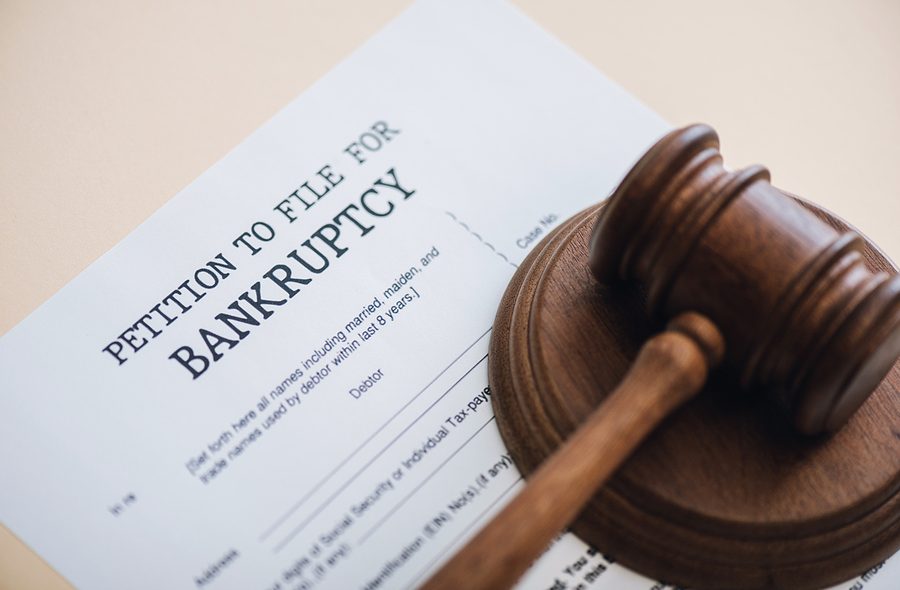If you have filed for bankruptcy protection in the past and have found yourself facing financial trouble again, it is possible to file for bankruptcy a second time. In fact, approximately eight percent of bankruptcy filers end up needing to file again at some point. Ultimately, how often someone can file for bankruptcy protection depends on the type of case he or she filed initially, as well as how much time has passed since that first case.
One of the more commonly used forms of consumer bankruptcy is the Chapter 7 bankruptcy also known as a “liquidation” bankruptcy. This form of bankruptcy lasts a few months, allowing the filer to work closely with the bankruptcy trustee to sell any nonexempt assets to pay off qualifying debts. At the end of the case, the remainder of the filer’s debts, which are usually credit cards or other unsecured debts, are discharged. A Chapter 13 bankruptcy is another form of consumer bankruptcy, also known as a repayment or reorganization bankruptcy. In a Chapter 13 bankruptcy, the filer works with the bankruptcy trustee on a repayment plan, which lasts anywhere from three to five years, where the person pays off his or her debts, liquidating what is left at the end of the case.
While no limit exists as to how many times a person can file for bankruptcy, the Bankruptcy Code does impose certain limits to ensure that the system is not abused. The clock begins running on the date the first case is filed with the bankruptcy court, not the date of discharge.
Filing Chapter 7 after Another Chapter 7 Case
For someone who has filed Chapter 7 bankruptcy, he or she must wait eight years from the date of the first filing to be able to pursue a second Chapter 7 case. The reason this period is the longest between bankruptcy cases has to do with how short a typical Chapter 7 case tends to be, as well as the fact that the filer does not need to enter into any repayment plan to finalize it.
Filing Chapter 13 after a Chapter 7 Case
If the consumer wishes to file a Chapter 13 bankruptcy case after receiving a Chapter 7 discharge, he or she will need to wait four years to file. It is important to note that if the person did successfully finalize the Chapter 7 case and received a discharge of his or her debts, filing a Chapter 13 case soon after receiving that discharge will prevent him or her from receiving a second discharge of debts.
Filing Chapter 7 after a Chapter 13 Case
Consumers wishing to file a Chapter 7 bankruptcy case after filing a Chapter 13, must wait six years before doing so. However, this waiting period can potentially be waived if the consumer paid back 100 percent to his or her unsecured creditors in the previous repayment plan. Occasionally, if it can be demonstrated that the filer paid at least 70 percent back of these debts and acted in good faith, the waiting period can be waived, as well. However, considering how long a Chapter 13 case can take, it is possible that a filer could end up proceeding with a Chapter 7 case just one year after receiving a bankruptcy discharge in a Chapter 13 case, especially if that case took up to five years to complete.
Filing a Chapter 13 Case after Another Chapter 13 Case
If the consumer had previously filed for Chapter 13 bankruptcy and received a discharge, he or she must wait two years from the date of filing before proceeding with another Chapter 13 case. Considering how long a Chapter 13 case can take, it is very rare to see a Chapter 13 case be filed so soon after a previous Chapter 13 discharge.
If you have questions on this topic or are in financial crisis and considering filing for bankruptcy, contact an experienced Miami bankruptcy attorney who can advise you of all of your options. As an experienced CPA as well as a proven bankruptcy lawyer, Timothy Kingcade knows how to help clients take full advantage of the bankruptcy laws to protect their assets and get successful results. Since 1996 Kingcade Garcia McMaken has been helping people from all walks of life build a better tomorrow. Our attorneys’ help thousands of people every year take advantage of their rights under bankruptcy protection to restart, rebuild and recover. The day you hire our firm, we will contact your creditors to stop the harassment. You can also find useful consumer information on the Kingcade Garcia McMaken website at www.miamibankruptcy.com.


